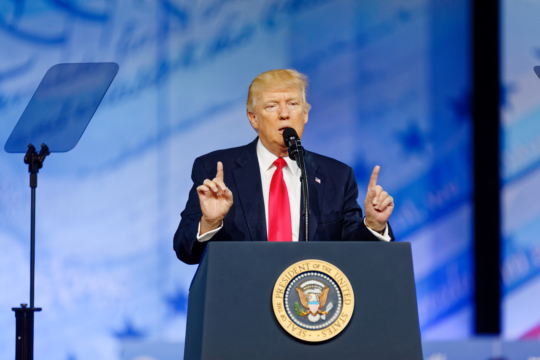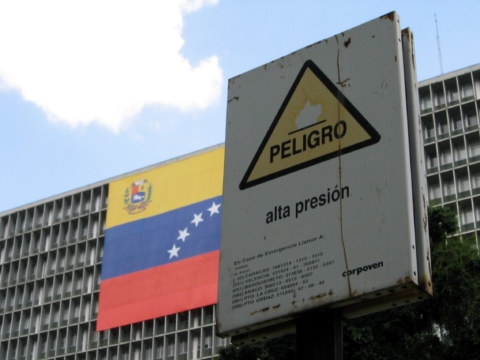
Cualquier final de la crisis en Venezuela es posible
A pesar de las protestas, los especialistas opinan que el chavismo aún tiene espaldas para aguantar en el poder.
A pesar de las protestas, los especialistas opinan que el chavismo aún tiene espaldas para aguantar en el poder.
Cuba Posible entrevista a Peter Hakim y Michael Shifter en conjunto para conversar sobre la integración latinoamericana y las relaciones “Norte-Sur”.
In January, U.S. President Donald Trump said the U.S. dollar was “too strong,” a departure from the past practice of U.S. presidents, who tried to avoid making such statements and influencing currency markets. How is the U.S. dollar’s relative strength affecting Latin American and Caribbean economies, and what would a weaker dollar mean for the region?
As Colombia begins the multi-year process of implementing last year’s peace accord, it is vital to balance environmental conservation with the need for sustainable economic development.
Why It Quit the Organization of American States
On April 27th, The Dialogue, the Center for Strategic & International Studies (CSIS), and the Brookings Institution hosted an event with Argentina’s President, Mauricio Macri. In the event, Argentina: At a turning point, Macri addressed the country’s challenges and the current administration’s plans for the future.
Brazil is on track to double its oil and gas production following a series of energy policy reforms aimed at increasing investment.
While the Trump administration’s “America first” policies are aimed primarily at giving higher priority to national security and economic growth for the United States, the White House’s approach will have impacts on energy relations with the rest of the hemisphere that should also be considered.
Lisa Viscidi, Director of the Energy, Climate Change and Extractive Industries Program, testified before the US House of Representatives Committee on Foreign Affairs on the subject of “Energy Opportunities in Latin America.”
This study presents the findings of a migrant survey conducted in November 2016 about remittances, new technologies, and financial access among Latin American migrants in the United States.
On Thursday, May 11th, the Inter-American Dialogue hosted an event with Denise Dresser, professor of Political Science from the Instituto Tecnológico Autónomo de México. During the event: What’s Wrong with Mexico & How to Fix It, Dresser addressed the challenges the country is facing today such as the US-Mexico relations, Enrique Peña Nieto’s presidency, and corruption.
On Tuesday, May 6th, the Inter-American Dialogue and the Inter-American Development Bank (IDB), hosted an event with Therese Turner Jones, Heather Sutton, Stacey Plaskett, and Richard Aborn. This event was the launch of the IDB’s new publication Restoring Paradise in the Caribbean: Combatting Violence with Numbers. The speakers focused on crime and violence, the region’s greatest challenge.
In the early 1980s, when the Inter-American Dialogue was born, the U.S. was actively supporting right-wing governments from El Salvador to Nicaragua. There were “tremendous misunderstandings between Latin America and the United States,” says Michael Shifter, longtime president of the D.C.-based think tank. These days, it seems those tremendous misunderstandings have returned with a vengeance, making the Dialogue’s work even more relevant.
On Tuesday, May 23rd, the Inter-American Dialogue hosted an event with Ivan Briscoe, Latin America and Caribbean program director at the International Crisis Group; Ana Glenda Tager, Latin America regional director at Interpeace; and Steven Dudley, Co-Director of InSight Crime. During this session, the speakers addressed violence in Central American in relation to gangs.
En esta entrevista radiofónica con Luis Montes para WLIE 540 AM, Michael Shifter analiza el presupuesto del gobierno de Trump y su impacto en la región, lo que podemos anticipar sobre las políticas de Estados Unidos hacia Cuba, y el rol de distintos actores en la crisis de Venezuela.
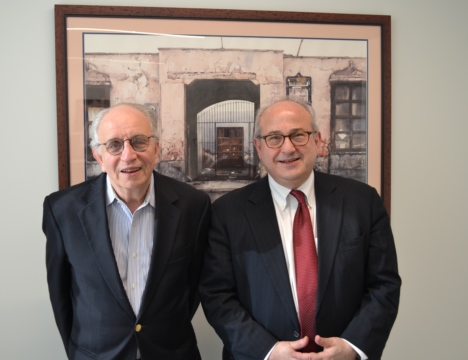
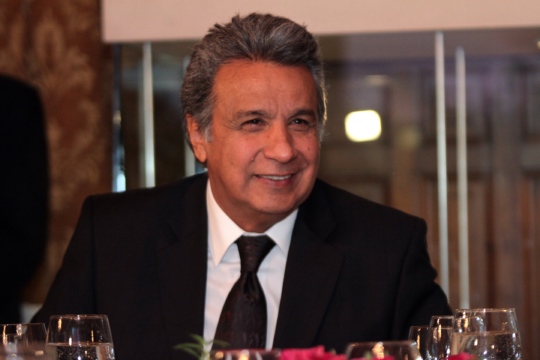
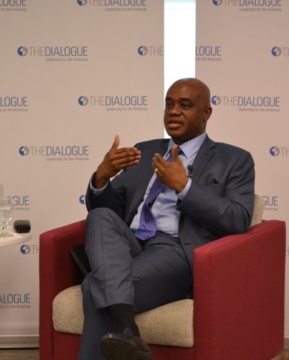
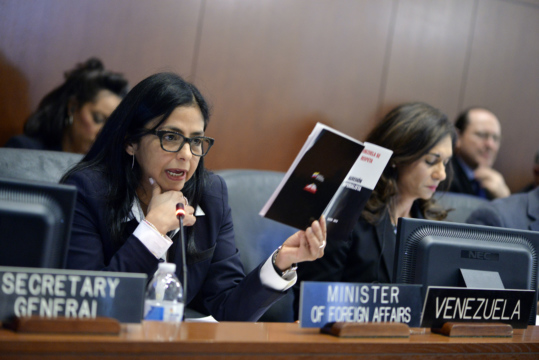
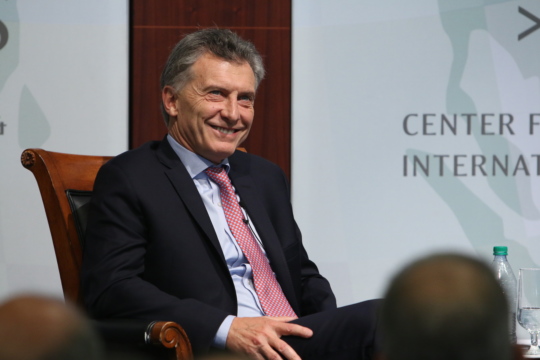
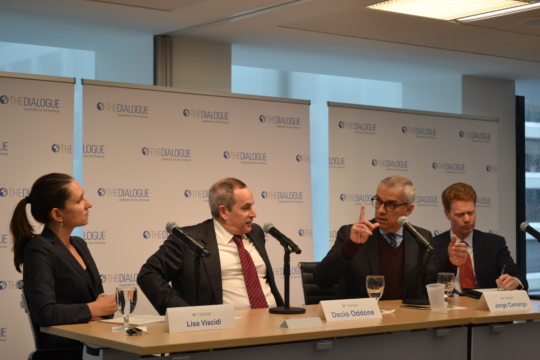
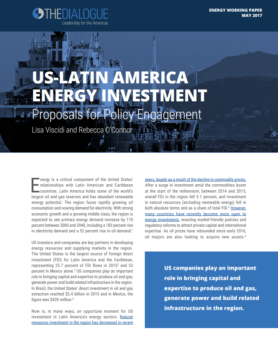
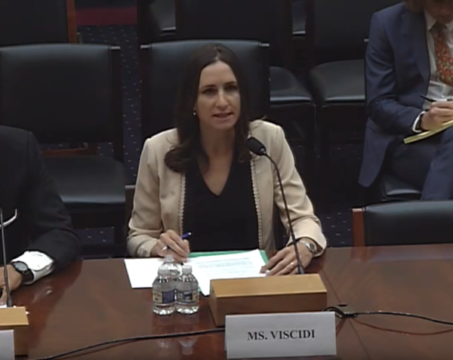 Video
Video
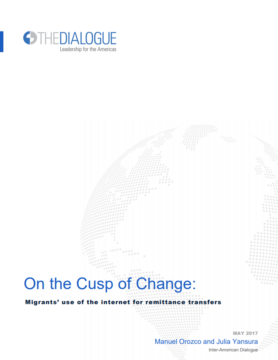
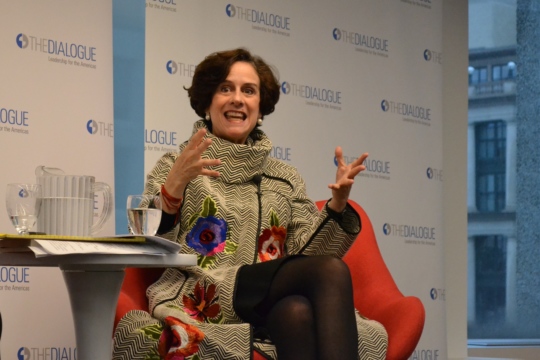 Video
Video
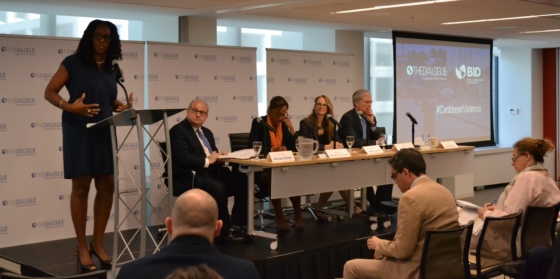 Video
Video
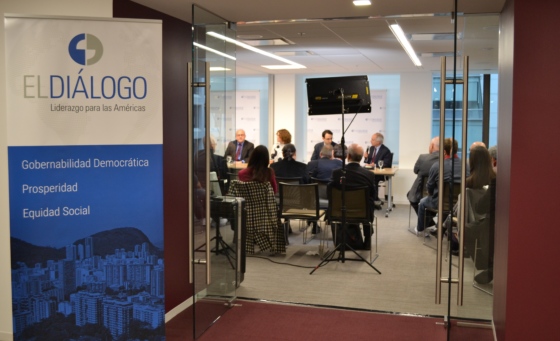
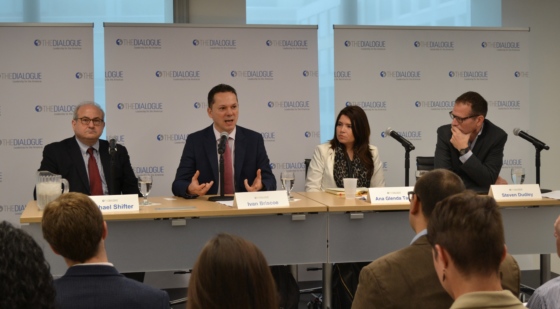 Video
Video
